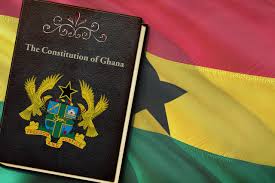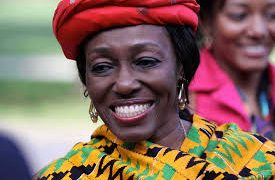Ghana’s Constitution is Not a Colonial Appendix
Broni Wewu: Somewhere in London this week, in a mahogany room lined with portraits of dead men in powdered wigs, someone with the brain of a needle banged a silver spoon on a teacup and declared: “We must teach those brutes in Ghana the rule of law, if not colonial comport.”
And so, the Bar Council of England and Wales (BCEW), together with the Commonwealth Lawyers Association (CLA), issued a communiqué in a tone more suited to a colonial district officer than to a 21st-century peer. It demanded that Ghana “immediately and without delay” reinstate our suspended Chief Justice, Her Ladyship Justice Gertrude A.E.S. Torkornoo. Not “urge.” Not “recommend.” No, command. As if 6th March 1957 never happened.
The arrogance is breathtaking. This is not legal solidarity; it is colonial muscle memory. The kind that assumes we still kneel before the empire’s bench, bowing to instructions wrapped in the language of “rule of law.” The kind that forgets we have a Constitution that owes Britain no obedience.
And the irony? Those now lecturing us on due process are heirs to an establishment that once exiled our Kings without trial, detained nationalists without charge, plundered whole nations, and filled our courtrooms with magistrates whose loyalty was to the Crown, not to justice. They now invoke the Latimer House Principles as if they invented judicial ethics. That history is not erased by 21st-century diplomacy.
The hypocrisy drips thicker than the blood and toil of our forefathers. The Attorney-General’s official response yesterday is, in truth, all that needs to be said in law. Dr. Dominic Ayine lays it out with clinical precision: Article 146 of the 1992 Constitution is not a suggestion; it is a command. Petitions from Ghanaian citizens were received. The Council of State, an independent constitutional body of eminent statesmen, examined them and found a prima facie case. A committee chaired by a sitting Supreme Court Justice was constituted. And under Article 146(10)(a), the President, acting strictly within the law, suspended the Chief Justice pending the outcome.
No executive overreach. No shortcuts. No colonial oversight required. Yet the BCEW/CLA statement blithely ignores these constitutional steps, waving the Latimer House Principles like a colonial ordinance. It presumes that Ghana’s judiciary is an annex of Westminster, that our constitutional rhythm must march to the click of their stopwatch. But this intervention is not about justice; it is about jurisdictional nostalgia. It is the belief that Britain’s opinion still carries executive force in the corridors of former colonies. It is the quiet, persistent fantasy that our courts remain subject to Westminster’s nod.
Ghana will uphold judicial independence because we demand it of ourselves, not because London wags a learned finger. We will follow due process because history has taught us the price of injustice, not because someone in a powdered wig clears their throat. And if the Chief Justice is to be reinstated, it will be by the authority of Ghana’s laws and people, not by a letter from men in wigs who still think the sun never sets on their say-so.
So to our learned friends in England and Wales, keep your wig on. The days when Ghana’s judges took instructions from Whitehall are gone. The empire’s bench is buried. The gavel is ours. You may disagree with the process. You may question its fairness. But the matter is ours to resolve, not a piece of unfinished colonial business for baggy egos to tidy up.








